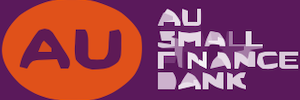Education Loan in India
Education loans in India play a crucial role in making higher education accessible to all. These loans cover expenses like tuition, books, and living costs, relieving the financial burden on families. They empower students to pursue dreams without financial constraints, offering flexible repayment options tailored to individual needs. Many banks and financial institutions provide these loans, ensuring students from diverse backgrounds can benefit. As education expenses continue to rise, the importance of education loans becomes even more evident, helping bridge the gap between aspirations and reality.
| Company | Loan amount | Term of Loan | Age Limit | Apply | |
|---|---|---|---|---|---|
 | up to ₹ 15.000 | 3 – 12 months | 21 – 65 | Apply for a loan | |
| NIRA is one of India's best Instant personal Loan apps providing loans from Rs 2500 – Rs 1 Lakh in partnership with leading banks and NBFCs.To apply for a personal loan with NIRA you would need your Aadhaar number, PAN number, Salary slip and 6months bank statements. | |||||
 | up to ₹ 50.000 | 3 – 60 months | 21 – 65 | Apply for a loan | |
| Navi is one of the largest lending apps in the country and the latest venture by Sachin Bansal (formerly co-founder of Flipkart, India’s largest e-commerce player) and Ankit Agarwal (formerly a banker with Deutsche Bank and Bank of America) that plans on making financial services simple, transparent and accessible to all. Navi provides its clients with cash loans, home loans and health insurace services. | |||||
 | up to ₹ 50.000 | 3 – 36 months | 21 – 55 | Apply for a loan | |
| Fibe (formerly EarlySalary) is one of India's leading digital lending apps focused on young, aspirational and tech-savvy Indian consumers. Instant Cash Loans, Personal Loans, Online Loan, Instant Personal Loans. | |||||
 | Credit Card | 21+ | Apply for a loan | ||
| IndusInd Bank Limited is a new-generation Indian bank headquartered in Pune. The bank offers commercial, transactional, and electronic banking products and services. IndusInd Bank was inaugurated in April 1994 by then Union Finance Minister Manmohan Singh. | |||||
 | Credit Card | Apply for a loan | |||
| Axis Bank Limited, formerly known as UTI Bank (1993–2007), is an Indian banking and financial services company headquartered in Mumbai, Maharashtra. It is India's third largest private sector bank by assets and Fourth largest by Market capitalisation. It sells financial services to large and mid-size companies, SMEs and retail businesses. | |||||
 | Credit Card | Apply for a loan | |||
| SBI Card was launched in October 1998 by the State Bank of India and GE Capital. Incorporated as SBI Cards and Payment Services Limited (previously known as SBI Cards and Payment Services Private Limited), SBI Card is headquartered in Gurgaon, Haryana. | |||||
 | Credit Card | Apply for a loan | |||
| Standard Chartered PLC is a British multinational banking and financial services company headquartered in London. It operates a network of more than 1,200 branches and outlets (including subsidiaries, associates and joint ventures) across more than 70 countries and employs around 87,000 people. It is a universal bank with operations in consumer, corporate and institutional banking, and treasury services. | |||||
 | Credit Card | Apply for a loan | |||
| HSBC is one of the world’s largest banking and financial services organisations. HSBC serves approximately 40 million customers through our global businesses: Wealth and Personal Banking, Commercial Banking, and Global Banking & Markets. Our network covers 63 countries and territories in Europe, Asia, the Middle East and Africa, North America and Latin America. | |||||
 | Credit Card | 25+ | Apply for a loan | ||
| AU is a dream that was started 25 years ago by Mr. Sanjay Agarwal, a merit holder Chartered Accountant and a first-generation entrepreneur. Founded in Jaipur in 1996 as Au Financiers, a non-deposit-taking Non-Banking Finance Company (NBFC), it effectively worked on funding economic growth, especially for the under-served and un-served low & middle-class individuals. | |||||
 | Credit Card | Apply for a loan | |||
| Credilio is an official distribution partner for the distribution of Personal Loan / Credit Line products of the following Banks and NBFCs. Credilio offers a life time free SMB credit card, powered by Visa. The card comes with various lucrative deals and offers on multiple online shopping and OTA platforms. | |||||
Payment Term: The minimum period is 3 months and the maximum 18 months. Interest rate: The rate varies between 7.9% and 18.9% per month (149% to 698% per annum). Example of a loan: ₹1,500.00, to be paid in 12 months and interest rate of 10.15% per month (219% per year). Total of 12 installments of ₹221.77. Total amount payable equal to ₹2,661.18. This is a service to find and compare loan and credits. The conditions depend on the financial company, product, amount and loan duration.
Understanding your education loan options
In India, financing education is a crucial step for many learners aiming for higher studies. Various types of education loans are available to cater to different needs. Primarily, students can opt for secured or unsecured loans. Secured loans require collateral, typically a property, whereas unsecured loans do not; they rely on the applicant or co-applicant’s creditworthiness.
- Student Loans: Tailored for individuals pursuing higher education, covering tuition, living expenses, and more.
- Parent Loans: Taken by parents to support their children’s education, often with favorable terms.
- Career Loans: Suitable for skill-based or vocational training programs, aiding in gaining specific job skills.
The features of these loans can vary greatly, with differences in interest rates, repayment options, and processing times. Typically, government-backed loans might offer lower interest rates, while private loans can feature quicker processing times.
Eligibility criteria
The criteria for securing an education loan in India can vary by bank or financial institution, but some common requirements exist. Generally, applicants must be Indian citizens. They should have secured admission to a recognised educational institution for higher studies either in India or abroad. Some lenders may require that the course selected is recognised by the government or its regulatory bodies. Whether it’s a full-time or part-time course, this could affect the eligibility. Age is another factor; applicants are typically between 18 to 35 years.
Moreover, lenders often evaluate the applicant’s academic performance and course type. Some institutions may have a minimum percentage criterion in previous examinations. Another point often considered is the borrower’s co-applicant’s financial status. This is usually a parent or guardian who supports the application. They might also require collateral for higher loan amounts. It’s crucial to carefully check all terms as these factors can impact the loan approval process.
Application process simplified
Applying for an education loan in India involves several straightforward steps. Initially, gather all necessary documents such as proof of admission, identity, and address. Submit these to your chosen bank or financial institution. A financial plan including tuition fees and other expenses is also essential.
Next, the bank will assess your eligibility based on criteria like your academic background and credit score. This evaluation helps determine the loan amount and terms. Once approved, you will receive a sanction letter. The funds are then disbursed, often in instalments, to cover tuition and related costs. Understanding these steps can simplify your loan journey, making higher education within reach.
Beware of terms and conditions
When considering an education loan in India, it’s crucial to understand the terms and conditions tied to the loan agreement. These terms dictate how much you will pay over time, the interest rates, and the repayment schedule. Neglecting these details could lead to unexpected financial burdens. It is vital to read through all clauses and note any penalties or additional fees that may apply for late payments or early repayment.
Remember, the finer details can significantly impact the total cost of the loan, so always read the loan agreement thoroughly.
Always be vigilant about the interest rates, as even a small percentage difference can affect the amount you repay significantly. Look closely at whether the interest rate is fixed or variable, since this will impact how stable your loan repayments are over the course of the loan. Another essential point to consider is the grace period. A grace period offers a limited time after graduation, during which you may not need to make immediate repayments. Ensure this benefit is included in the agreement if it’s important for your financial planning. Consider all these elements carefully to make an informed decision.
Repayment plans you didn’t know exist
Education loans in India come with a variety of repayment options that cater to different financial situations. While the standard repayment plan is widely known, there are some lesser-known schemes that might fit your needs better. For instance, many banks offer a flexible repayment option, allowing you to start with lower EMIs and gradually increase them as your income grows. This is particularly helpful for fresh graduates just entering the job market.
Another option is the income-driven repayment plan. Such plans adjust the monthly repayment amount based on your earnings. They ensure that your financial burden remains manageable, especially if your post-education salary isn’t as high as expected. Additionally, some lenders offer step-up repayment plans with lower initial payments that increase over time, which can be advantageous as your career progresses. It is crucial to explore these options, aligning them with your financial goals and career path, so you can manage your education loan effectively and with less stress.
Advantages of taking an education loan
Education loans offer significant benefits, making higher studies more accessible. They provide financial support which eases the burden of hefty tuition fees, allowing students to focus on their studies. Moreover, they often come with flexible repayment options that accommodate a student’s financial situation post-graduation. Another advantage is the generally lower interest rates compared to personal loans.
Comparative Table of Loan Options
| Loan Type | Interest Rate Range | Repayment Tenure |
|---|---|---|
| Government Education Loan | 8% – 10% | Up to 15 years |
| Private Education Loan | 10% – 14% | Up to 10 years |
| No-Collateral Loan | 12% – 15% | Up to 7 years |
Education loans also offer tax benefits under Section 80E of the Income Tax Act, which can significantly reduce the overall cost of the loan. This makes them an attractive option for prospective students and their families looking to invest in education.
The reality of loan approvals
Getting an education loan in India involves more than just applying. A strong credit history and secure collateral often play a crucial role in the approval process. Loan officers assess multiple factors like income stability and previous financial repute of the applicant. These checks ensure the applicant’s ability to repay, reducing risk for the lender.
“The requirement for collateral can be a stumbling block for many, limiting access to higher education for those without sufficient assets,” highlights one industry expert.
Additionally, the approval timing can vary significantly. While some cases may conclude swiftly, others might stretch out due to meticulous document verification. This variability means that it’s wise to apply early, particularly if there are immediate educational needs.
